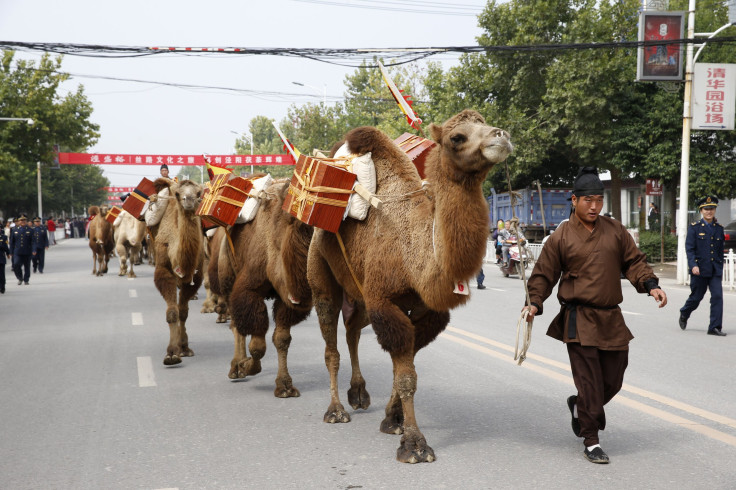Xi Jinping Says Silk Road Trade Between China, Other Nations To Exceed $2.5 Trillion In A Decade

Chinese President Xi Jinping said Sunday he hoped the annual trade from a proposed New Silk Road between China and other nations would exceed $2.5 trillion in a decade. Speaking at a legal event in the southern city of Boao, Xi also said he would ensure that the interests of foreign companies are protected.
"We hope that the annual trade volume between China and these countries surpasses $2.5 trillion in a decade or so," Xi told representatives from 40 companies, Reuters reported.
Under the so-called “One Belt, One Road” initiative, China aims to create a trade route that would include a network of railways, highways, resource pipelines, power grids, internet networks and infrastructure stretching across Asia and reaching as far as Greece, Russia and Oman. The $40 billion project announced in November has three distinct economic pathways -- one running from Central China through Central Asia and to the Middle East, a maritime route from the southern coast, and a third stretching from the southern province of Yunnan to countries like Myanmar and Laos.
Another key part of the new Silk Road initiative is China’s recently unveiled $50 billion Asian Infrastructure Investment Bank (AIIB), which was created with the objective of lending money to developing countries to build roads, railways and other infrastructure. The AIIB is also widely seen as a competitor to the World Bank and the Asian Development Bank, leading to fears that China is trying to exert soft power over the region and undermine the two Washington-backed global lenders. Several other countries, including Russia, Denmark, the U.K. and Australia have joined the China-led bank, drawing criticism from the U.S.
Beijing has tried to allay these fears by stressing that the AIIB sees itself playing a complementary role. Leaders from other global banks have said they will cooperate with the Chinese lender.
At the Sunday event, Xi also sought to allay the fears of foreign businesses, who have raised concerns about China's protective and anti-competitive business policies.
"China will be more open. China's policies that encourage the use of foreign investment will not change, and the protection of legitimate rights and interests of foreign-invested businesses will not change," Xi reportedly said.
© Copyright IBTimes 2025. All rights reserved.





















